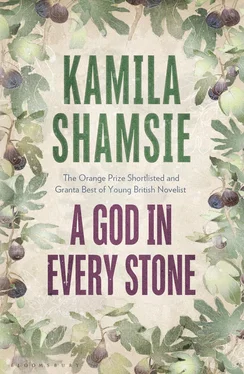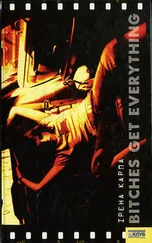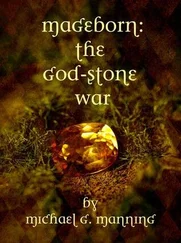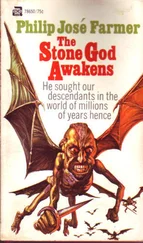A boy bicycled past, singing, Oh we don’t want to lose you but we think you should go. Viv picked up her pace. Mary, soon to leave for nursing duties on the Front, was expected for supper.
When she arrived home, she could hear Mary’s voice, and her father’s, booming out from the parlour, partners in conviction. Viv smiled as she handed her coat to the one-armed footman. Mary and Papa were as united over pacifists as they’d once been divided over suffragettes, though when they suddenly fell silent she knew Mama had delivered a quiet, stinging blow. Nothing was as it had been before, and she thought of the colonial wives in Peshawar — their lives still mired in the nineteenth century — with pity.
She sent the footman into the parlour to say she’d be down in a few minutes, and went up the stairs to change out of her uniform. On her desk, beneath the framed rubbing of Asoka’s Rock Edict, was today’s post. She picked up the two envelopes. The first from Mrs Forbes in Peshawar had a pleasing thickness. She would read it after supper. The second, in an unfamiliar hand, was from Greece.
She stepped out onto her balcony, into the unexpectedly mild evening. Above, the thick bank of clouds reflected the flickering gaslight of streetlamps. The orange glow from streets and clouds was strong enough to read by. Opening the envelope she pulled out a sharp-edged page which gashed her thumb as she withdrew it. Holding her thumb to her mouth, she looked at the seal at the top of the page and frowned. Why would Tahsin Bey’s nephew, Mehmet, be writing to her? And why from Greece?
Vivian Rose Spencer
I have this address from my uncle’s book, and hope it continues to be the correct one. For a long time I’ve avoided writing to you, but there are things which must be said. Last April, Wilhelm sent a telegram informing my uncle of your activities in London. I was with my uncle when he received it. He was insistent that whatever the war may have forced on you, you didn’t come to Labraunda as a spy and that it had been his idea, not yours, for you to join the coastal walk which made you so valuable to Intelligence. I said it was obvious that his feelings for you were strong enough to make manipulation easy. We argued about it, but in the end he made me feel guilty for my ill thoughts about you.
It didn’t occur to my uncle to wonder why Wilhelm had sent a telegram — he didn’t see the urgent method of communication as a warning although we knew already that Wilhelm was with Military Intelligence in Germany. (‘How will archaeologists ever be trusted again’ was my uncle’s only note of complaint about what you had done, and he directed it mostly at Wilhelm.) At first, it didn’t occur to me either. But then I asked if he might have said anything to you which would create trouble if you repeated it in London to the men you were working for.
‘She would never repeat it.’
Those were his words, and they made my heart stop. I thought I was the only one close enough to know his deepest secret, and even I had never heard him express it directly. I merely knew in the way we know unsaid things about people we have loved and revered all our lives. He would not hear anything I tried to say to him about you, about the danger in which he had placed himself.
It is only now, all these months later in my self-imposed exile in Greece, that I have managed to receive confirmation that the Germans intercepted a communication from London which described my uncle as an Armenian sympathiser who could be a useful informant. You were named as the source. Wilhelm found out about this after the Germans relayed the information to the Ottomans. It is possible you already know this, and regard it as just another casualty of war, one suffered by the enemy, but in case you don’t: two days after receiving Wilhelm’s telegram, while walking Alice through the park in accordance with his daily ritual, my uncle was shot dead. There is no doubt in my mind it was because of your betrayal.
Mehmet
Viv lowered the hand holding the letter, the taste of iron on her tongue. After the war, Vivian Rose. His voice in her ear, its accent, its timbre. Her own voice that of a stranger when she cried out into the night.
Later, much later that evening, after her mother finally tiptoed away from her room, believing she was asleep, Viv lay open-eyed in the pitch darkness. Tahsin Bey on the Split Rock of Labraunda watching the sunrise; Tahsin Bey teaching Nergiz’ son bird-calls; Tahsin Bey lighting up a cigarette and telling a story of two thousand years ago as if it were still unfolding; Tahsin Bey removing clinging earth from the eyes of a stone god, his breath combining with Viv’s to allow Zeus to see again; Tahsin Bey stepping close to her, his hand on her waist, one strong forearm holding her close. Tahsin Bey’s body lowered into the earth.
He was dead because of her. Wherever she went in the world, whatever she did, this would always be the truth at the core of her life.
Twentieth-century Herodotus
Najeeb Gul
Rose Door House
Next door to Hari Das Cobbler’s
Off Lahori Gate Road
Peshawar
Qayyum Gul
Guest of Sher Mohommad Yusufzai
Shahbaz Garhi
19 November 1928
Lala
How long will your friend’s wedding celebrations go on? My footsteps are an intruder in the silence of the house. You should come back soon — not only for your lonely brother but because of what it must cost your hosts to keep you well fed. How much you eat, Lala! I never noticed it before but our sisters are sending over half the quantity of food as when you’re here and most of it still goes uneaten. You must have gobbled up half the chickens of Shahbaz Garhi in the week you’ve been away.
(I know your expression right now — one side of your mouth a smile, the other side a scowl.)
Remember when the owner of the sugar-cane fields at Shahji-ki-Dheri died and one of the men who worked his lands told you the son who had inherited showed some regret that such bad feelings had existed between his father and the English over the matter of leasing the land for excavation? Now it seems an artefact that first entered my dreams in childhood might be beneath those fields. Will you find out the best way to approach the new owner for leasing the land — directly or in a roundabout fashion? With flattery, gifts or a straight gaze? Nothing has ever been more important to me than this.
I hope many people have come for the wedding celebrations, and they are going well.
Your brother
Najeeb
Najeeb Gul
Peshawar Museum
Peshawar
India
Miss V. R. Spencer
University College
London
Great Britain
19 November 1928
Dear Miss Spencer
Please forgive this intrusion. You may remember me from your time in Peshawar in 1915 when I was your student. I certainly have not forgotten you. You introduced me to the world of Scylax and Herodotus, and set me on the path I have continued to follow. (I accompanied you the first time you went to Shahji-ki-Dheri, if that aids memory.)
Following on from my degree in history from Islamia College in Peshawar I have had the good fortune of working with Dr John Marshall. I spent two years with him at Taxila before being offered the position of Indian Assistant (the role formerly known as ‘Native Assistant’) at the Peshawar Museum, from where I now write to you. Mr Hargreaves is Superintendent and was the one to tell me you could be reached at University College, London.
You must be wondering why I’m writing to you after so many years. It concerns the matter of Shahji-ki-Dheri. Several years ago Mr Wasiuddin — who was Native Assistant here during your time — told me you had tried to obtain permission to excavate the stupa site. I understood then that you truly did believe the Kanishka Casket and the Sacred Casket to be one and the same, and must also have deducted that the Circlet was buried there during the visit of Sung-Yun, whose ‘mission was not that of theft’. It is entirely understandable you didn’t wish to reveal as much to a twelve-year-old boy. Perhaps you already know that, due to the protracted dispute with the owners of the site, the excavation was levelled in 1919. There is nothing but wheat fields now where once we walked among the broken stupas and cross-legged Buddhas.
Читать дальше












